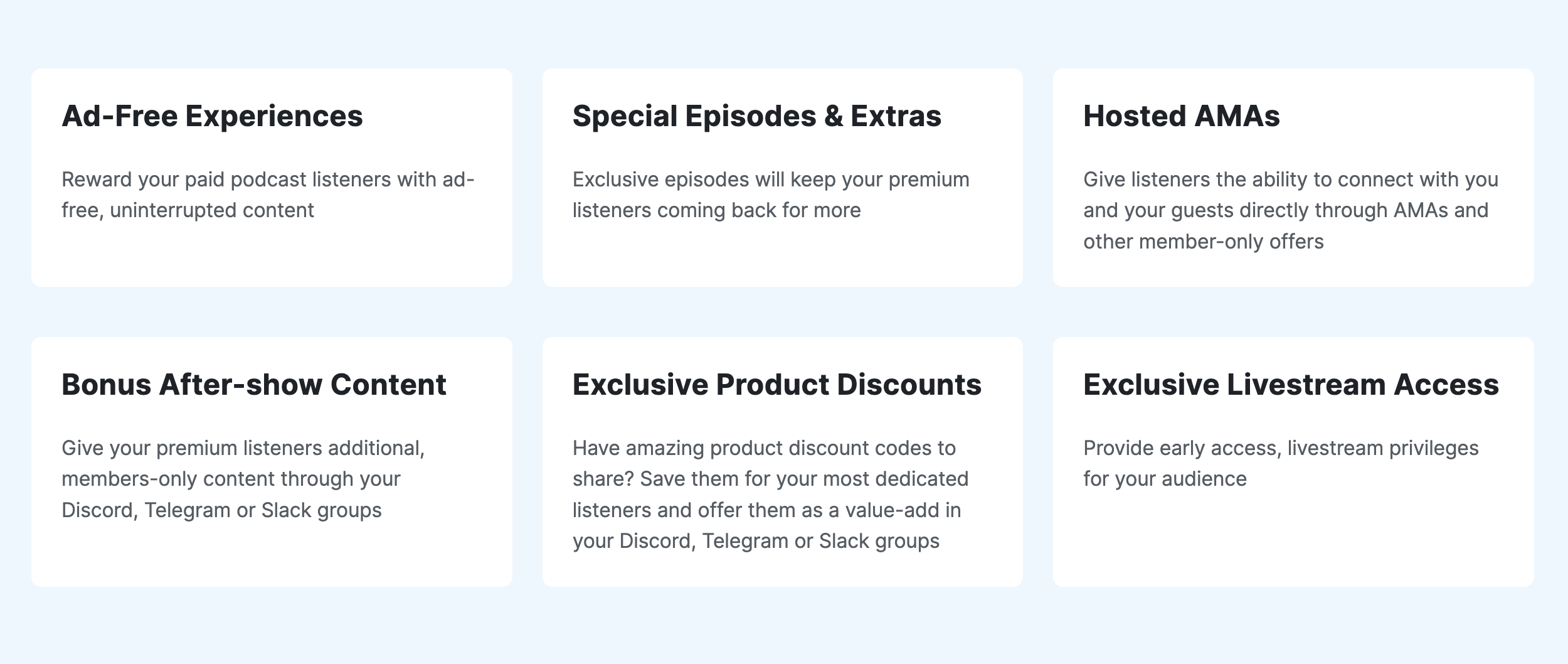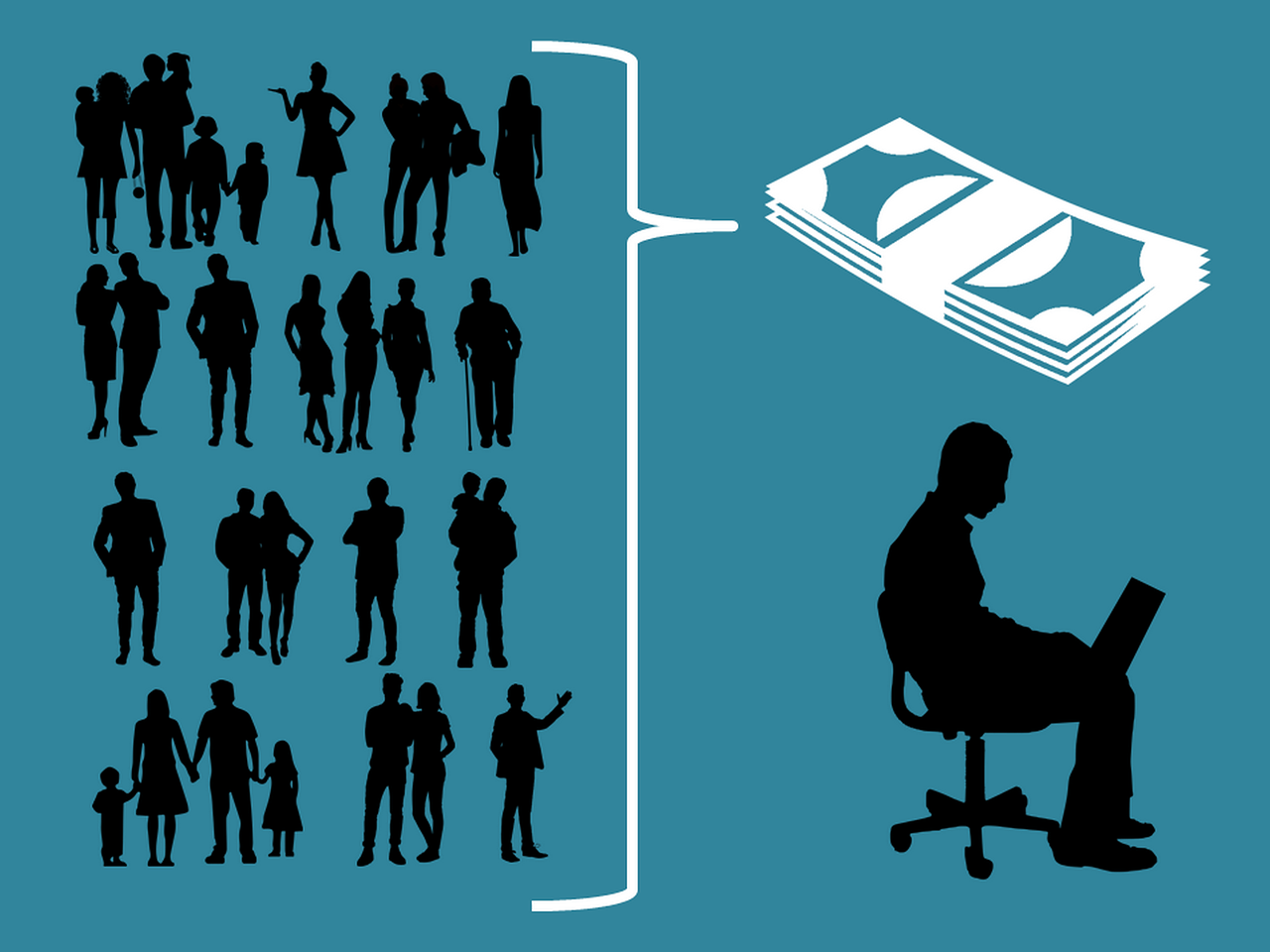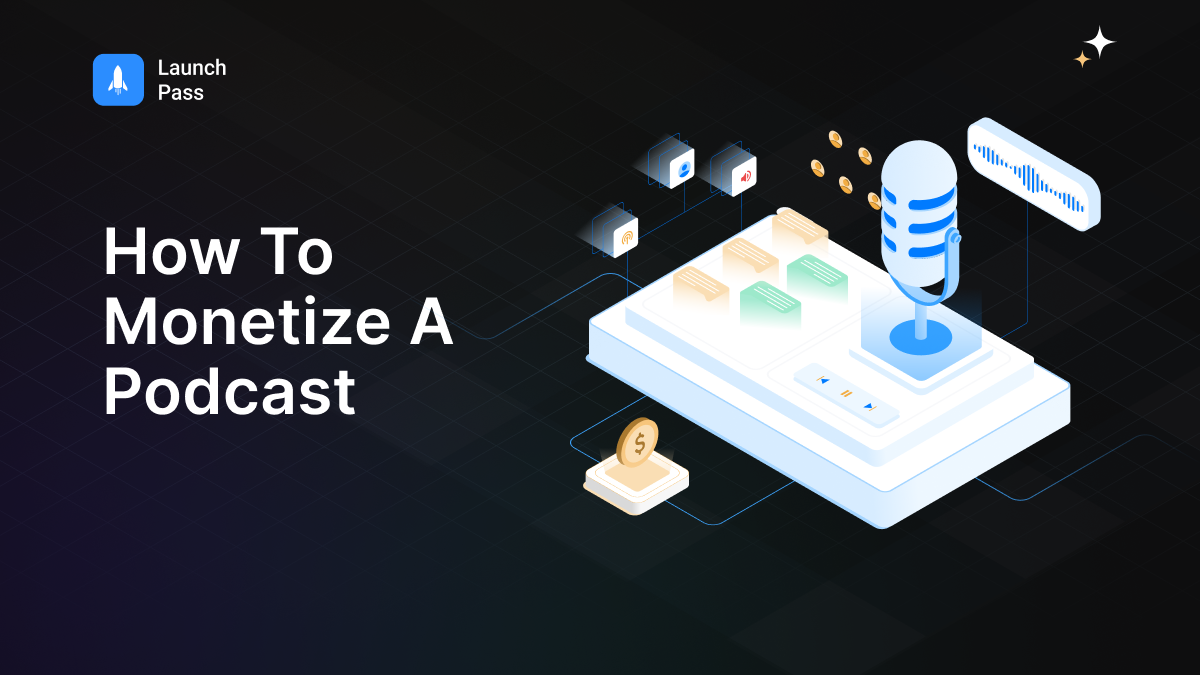Wondering how to monetize a podcast? Podcasting has exploded in popularity, with millions of shows competing for listeners’ attention. But for many creators, the big question remains: How can you turn your passion project into a profitable venture?
Whether you’re just starting out or you’ve been podcasting for years, there are many ways to monetize your show and start earning from your hard work.
Want to transform your podcast from a hobby into a money-making machine? Read on to explore the various strategies you can employ to monetize your podcast and build a sustainable income stream. From traditional methods to cutting-edge techniques, we’ll cover everything you need to know to start cashing in on your content.
1. Sponsorships and Advertising
If you’re wondering how to monetize a podcast the easy way, sponsorships and advertising are a smart option. This involves partnering with brands to promote their products or services during your episodes. Here’s how you can get started:
- Build your audience first. Most sponsors look for podcasts with a significant number of listeners. Even better if you fill a specific niche. Focus on creating quality content and growing your audience before seeking sponsorships.
- Know your numbers. Sponsors will want to know your download statistics, audience demographics, and engagement rates. Use podcast hosting platforms that provide detailed analytics to track these metrics.
- Research potential sponsors. Look for brands that align with your podcast’s theme and audience interests. Make a list of companies you’d like to work with and start reaching out.
- Create a media kit. This should include information about your podcast, listener statistics, and sponsorship options. Make it professional and visually appealing to attract potential sponsors.
- Decide on ad formats. You can offer pre-roll ads (at the beginning of the episode), mid-roll ads (in the middle), or post-roll ads (at the end). Each has its pros and cons, so consider what works best for your show’s format.
- Set your rates. Podcast ad rates are typically calculated on a cost per mille (CPM) basis, which means the cost per thousand listeners. Rates can vary widely based on your niche and audience size.
- Be authentic in your delivery. When reading ad copy, make it sound natural and conversational. Your listeners will appreciate your honesty, and sponsors will see better results.
2. Affiliate Marketing
Affiliate marketing is another popular method for monetizing podcasts. This involves promoting products or services and earning a commission on any sales made through your unique affiliate link. Here’s how to make it work for you:
- Choose relevant products. Select items or services that your audience would find genuinely useful. Your recommendations should feel natural and valuable, not forced or spammy.
- Disclose your affiliations. Always be transparent with your listeners about your affiliate relationships. This builds trust and is often required by law.
- Create dedicated resources. Consider making landing pages or resource lists that feature your affiliate products. You can direct listeners to these pages for more information.
- Track your performance. Use unique affiliate links for each product and episode to see which promotions are most effective. This helps you refine your strategy over time.
- Don’t overdo it. Limit the number of affiliate promotions per episode to avoid overwhelming your listeners. Quality over quantity is key here.
- Consider creating product reviews or comparison episodes. These can provide value to your audience while naturally incorporating affiliate products.
3. Premium Content and Subscriptions

Offering premium content or paid subscriptions can be a great way to monetize your most dedicated fans. This model works well if you have a loyal following who crave more of your content. Here’s how to implement it:
- Determine your premium offerings. This could include ad-free versions of your episodes, bonus content, early access to episodes, or exclusive Q&A sessions.
- Choose a platform. There are several platforms designed to help podcasters offer premium content. A good example is LaunchPass. This platform can help you set up and manage a paid community around your podcast, handling payments and member access automatically.
- Set different tier levels. Offer various subscription levels at different price points to cater to different types of fans and budgets.
- Promote your premium content. Regularly mention your premium offerings on your free episodes to entice listeners to upgrade.
- Deliver consistent value. Ensure your premium content is high-quality and worth the extra cost to maintain subscriber loyalty.
4. Live Events and Workshops
Taking your podcast offline and hosting live events or workshops can be an excellent way to monetize your show and connect with your audience. Here’s how to make it happen:
- Start small. Begin with local meetups or virtual events before moving on to larger-scale productions.
- Choose a format. This could be a live recording of your podcast, a Q&A session, a workshop related to your podcast topic, or a full-fledged conference.
- Sell tickets. Use platforms like Eventbrite or Ticketmaster to handle ticket sales and promotion.
- Seek sponsors. Local businesses or brands related to your podcast topic might be interested in sponsoring your event.
- Offer VIP experiences. Create premium ticket options that include perks like meet-and-greets or exclusive merchandise.
- Record the event. You can repurpose this content for your podcast or sell it as a separate product later.
- Consider virtual options. Online workshops or webinars can be a low-cost way to test the waters and reach a global audience.
5. Merchandise
Creating and selling merchandise can be a fun and profitable way to monetize your podcast. It also helps build brand awareness and community among your listeners. Here’s how to get started:
- Design appealing products. Create merchandise that reflects your podcast’s brand and appeals to your audience. This could include t-shirts, mugs, stickers, or more unique items related to your show’s theme.
- Use print-on-demand services. Platforms like Printful or Teespring allow you to create and sell merchandise without holding inventory.
- Promote your merch. Mention your products during episodes and share them on social media. Consider offering limited-time designs to create urgency.
- Offer bundle deals. Package multiple items together at a discounted rate to encourage larger purchases.
- Get listener input. Ask your audience what types of merchandise they’d be interested in. This ensures you’re creating products they actually want to buy.
- Consider seasonal or special edition items. These can create excitement and encourage repeat purchases from your fans.
- Use your merch as prizes. Offer your products as giveaway prizes to generate buzz and interest.
6. Consulting and Coaching
If your podcast has established you as an expert in your field, you can monetize this expertise through consulting or coaching services. Here’s how to leverage your podcast to sell your knowledge:
- Identify your area of expertise. What unique insights or skills can you offer that your listeners would value?
- Create service packages. Develop different levels of consulting or coaching services to cater to various needs and budgets.
- Promote your services on your podcast. Mention your offerings during episodes, especially when discussing topics related to your services.
- Offer a free consultation. This can help potential clients get a taste of what you offer and build trust.
- Use case studies. Share success stories from your consulting work on your podcast to demonstrate your value.
- Create a dedicated page on your website. Make it easy for interested listeners to learn more about your services and how to book you.
- Consider group coaching. This can be a more affordable option for clients and a more scalable model for you.
7. Crowdfunding

Crowdfunding can be an effective way to monetize your podcast, especially if you have a dedicated fan base. Here’s how to make it work:
- Set clear goals. Let your audience know what their contributions will help you achieve, whether it’s upgrading equipment or producing more episodes.
- Offer rewards. Give supporters something in return for their contributions, like shout-outs, exclusive content, or merchandise.
- Be transparent. Keep your backers updated on how their contributions are being used and the progress you’re making.
- Promote your campaign. Mention it in your episodes and share it across your social media channels.
- Show gratitude. Regularly thank your supporters and acknowledge their role in your podcast’s success.
- Consider a time-limited campaign. This can create urgency and motivate listeners to contribute.
8. Repurposing Content
Don’t limit yourself to audio content. Repurposing your podcast content into other formats can open up new monetization opportunities. Here’s how:
- Write a book. Compile your podcast insights into a book or ebook that you can sell to your audience.
- Create online courses. Turn your podcast topics into structured learning experiences that listeners can purchase.
- Start a YouTube channel. Record video versions of your podcast or create supplementary video content to monetize through YouTube’s partner program.
- Write blog posts. Turn your podcast episodes into written articles that you can monetize through advertising or affiliate links.
- Create infographics or downloadable resources. These can be sold individually or offered as part of a premium subscription.
- Offer transcripts. Some listeners might prefer to read your content, so consider selling episode transcripts.
9. Networking and Partnerships
Building relationships within your industry can lead to various monetization opportunities. Here’s how to leverage networking for podcast profit:
- Collaborate with other podcasters. Cross-promotion can help you reach new audiences and potentially lead to paid opportunities.
- Partner with brands for special projects. This could include sponsored series or co-created content that goes beyond traditional advertising.
- Speak at industry events. Use your podcast as a platform to secure paid speaking engagements.
- Offer podcast production services. Help other businesses or individuals start their own podcasts for a fee.
- Create a podcast network. Join forces with other podcasters to attract larger advertising deals and share resources.
- Develop strategic partnerships. Look for businesses or organizations that complement your podcast’s mission and explore mutually beneficial arrangements.
- Attend podcast conferences. These events can be great for making connections that lead to monetization opportunities.
How to Monetize a Podcast: Wrapping Up
Monetizing a podcast takes time, effort, and creativity. There’s no one-size-fits-all approach, so you’ll need to experiment with different strategies to find what works best for your show and audience. Stay patient, keep producing great content, and be open to new opportunities as they arise.
The key to successful monetization is providing value to your listeners. Whether through informative content, entertaining discussions, or exclusive perks, always prioritize your audience’s experience. By focusing on creating a high-quality podcast that resonates with your listeners, you’ll build a loyal following that’s more likely to support your monetization efforts.
Exploring options for monetizing your Podcast? Try LaunchPass for free! Get started here.
